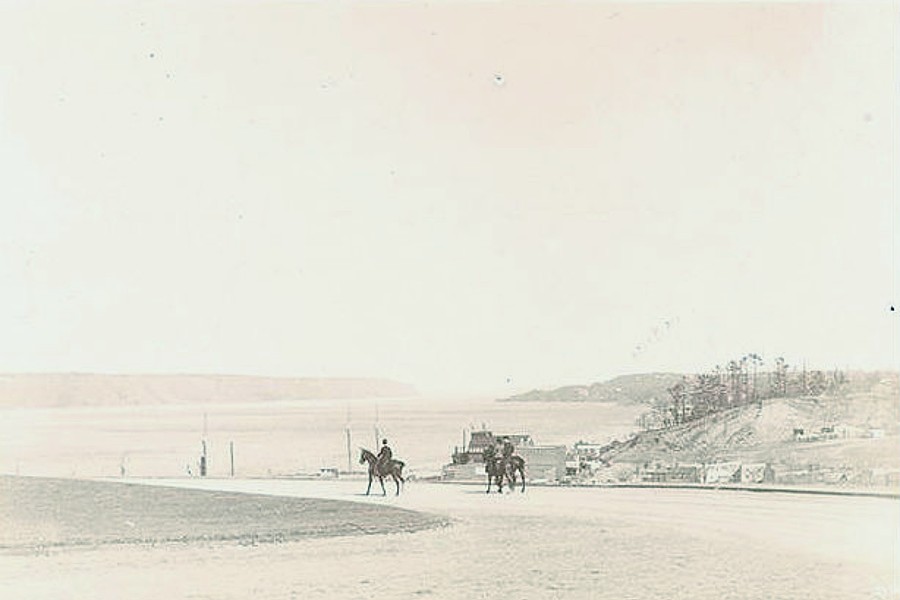
By HWM
In the bustling streets of 19th-century New York City, a hidden gem emerged just a few miles north—a tranquil community haven known as Harlem, NY.
While Harlem is now synonymous with vibrant city life and cultural heritage, back in the day it once encompassed vast expanses of open countryside, offering respite from the urban chaos that surrounded it further downtown near the rabble.
Nestled amidst rolling hills and verdant landscapes, country life in 1800s Harlem provided a stark contrast to the relentless pace of city living.
As Manhattan rapidly expanded, Harlem retained its rural character, characterized by farmland, estates, and open spaces drawing city dwellers seeking solace in its idyllic countryside.
Harlem’s country estates were havens for the affluent, who built sprawling mansions but not adorned with meticulously manicured gardens.
These estates were not only symbols of wealth but also places of retreat, where the elite could escape the noise and congestion of the uncivilized downtown Manhattan.
The allure of country living in Harlem extended beyond the grandeur of the estates. The surrounding natural beauty offered a myriad of recreational opportunities.
Residents and visitors alike reveled in horseback riding, strolls along tree-lined paths, and picnics in the shade of ancient oak trees.
The Harlem River, meandering through the landscape, provided an inviting backdrop for boating and fishing excursions, further enhancing the appeal of this bucolic retreat.

The rural charm of 19th-century Harlem was not limited to the estates of the wealthy. Working-class families found respite in small farms, cultivating crops and raising livestock. The fertile soil and favorable climate made agriculture a viable means of sustenance for many, fostering a sense of self-sufficiency and community cohesion.
Amidst the serenity of country life, Harlem remained a place of cultural exchange and diversity. Enslaved Africans and African Americans, who toiled on the estates as laborers or domestic workers, brought their own traditions and cultural practices, enriching the fabric of Harlem’s rural community.
Their invaluable contributions formed the foundation for the vibrant African American heritage that would later shape Harlem‘s identity.
“…the relentless march of urbanization encroached upon Harlem’s countryside.”
As the 19th century progressed, the relentless march of urbanization encroached upon Harlem’s countryside. The once-spacious estates were subdivided, and farms gradually gave way to urban development. The transformation was inevitable, as the expanding city demanded space and resources.
Yet, the echoes of country life in 1800s Harlem still resonate, reminding us of a simpler time when nature intertwined with the rhythm of daily life. It is a reminder that within the confines of a rapidly evolving metropolis, pockets of serenity and tranquility existed, offering a glimpse into a bygone era.

As we explore the rich tapestry of Harlem’s history, let us not forget the allure of its country life during the 1800s.
It was a time when the verdant landscapes nurtured dreams when the countryside provided a sanctuary from the bustling city, and when the community flourished amidst the harmony of nature.
Related: Check out our Harlem History page on Facebook.
In revisiting this forgotten chapter, we come to appreciate the delicate balance between progress and preserving the cherished remnants of a bygone era.
HWM
The Harlem World Magazine is a body of content partners (freelancers, companies, organizations, etc.,) that create content for the magazine. www.harlemworldmagazine.com
Photo credit: 1) Country Horse ride, Harlem 1896. 2) Country Living, 1900. 3) Lagerbier Salon R Restaurant, Harlem.
Become a Harlem Insider!
By submitting this form, you are consenting to receive marketing emails from: Harlem World Magazine, 2521 1/2 west 42nd street, Los Angeles, CA, 90008, https://www.harlemworldmagazine.com. You can revoke your consent to receive emails at any time by using the SafeUnsubscribe® link, found at the bottom of every email. Emails are serviced by Constant Contact








